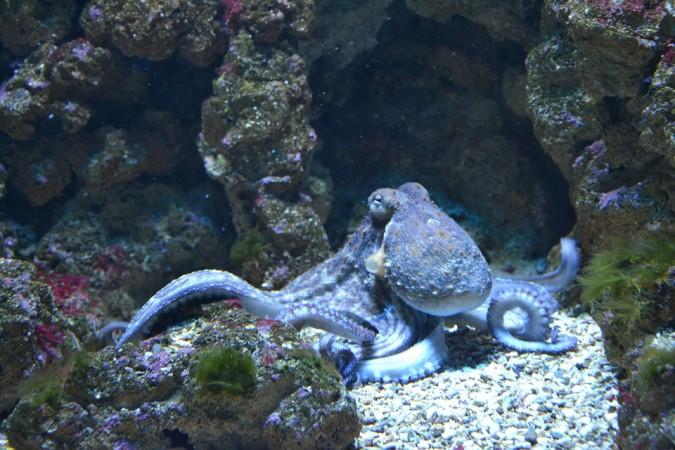
A group of octopus "mothers" near Costa Rica seems to be on a suicide mission as the creatures were recently spotted with their eggs in a rather hostile environment.
A team of geochemists accidently stumbled upon a doomed gathering of hundreds of purple octopuses while exploring a 2-kilometer ridge of cooled lava named Dorado Outcrop (100 miles off the coast of Costa Rica). The team was collecting samples of the heated fluids, leaking from the seafloor.
Zoologist Janet Voight from the Field Museum in Chicago along with two other researchers scrutinized the footage recorded by a submersible vehicle, trying to figure out what the octopus mothers were doing so deep, especially in warm water.
"When I first saw the photos, I was like 'No, they shouldn't be there! Not that deep and not that many of them," said Voight, while pointing out the specimens belonged to the genus Muusoctopus and were actually a new species.
However, this discovery also baffled the scientists as octopuses from this genus are generally loners and they do not hang around in groups.
Another astonishing thing was that similar octopus species prefer cold water, but these creatures were deliberately clutching on to the rocks near vents of heated liquid. It was like a mass suicide.
Hot temperature increases octopuses' metabolic rate, which makes them need more oxygen but at the same time, they face trouble extracting it from warm water.
Researchers found that the eggs were also dying due to the warm water as there wasn't any sign of embryos moving inside the eggs.
Voight concluded that: "Octopus females only produce one clutch of eggs in their lives. For this huge population to be sustained, there must be even more octopuses to replace the dying mothers and eggs that we can see."
It is very much possible that another huge population of the octopuses is thriving nearby, in a much suitable condition.
Another thing that might have happened is that the conditions around the rocks were probably not so hostile when the mothers initially laid their eggs. However, once the temperature began to increase, they didn't want to abandon them.
The study was published in the journal Deep Sea Research Part I: Oceanographic Research Papers.














